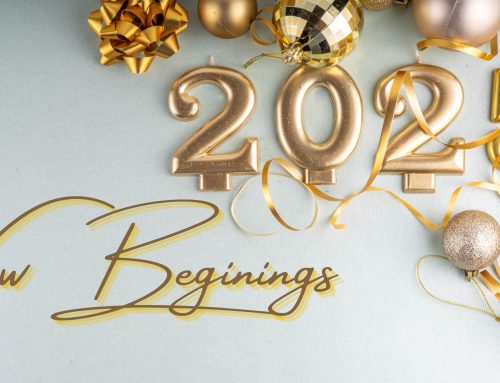The quality of adult relationships hinges on a number of factors including adult attachment. Do you ever look at the couples around you and wonder how they stay together? I’m impressed by couples who seem to navigate life’s ups and downs with grace and commitment to their relationship.
A lot of couples aren’t so happy. Many have a difficult time because of outside circumstances or situations of their own making. Relationships are hard because we each bring our own unique perspective and psychology to them. We each believe our perspective is the correct one and we each feel like what we give is more significant than what we get in return. This is valid and true in a sense because what we give is often what is most important to us and most like what we would like in return.
Our perspective about relationships forms very early in our childhood. Infants have an innate attachment system which is a biological function that serves to keep them close to primary caregivers for the purpose of protection and safety. Depending on how attuned the mother is to the needs of her child, the child will attach in an organized, predictable way that will either be secure, ambivalent, avoidant or disorganized. We’ll be focusing on the first three. It turns out, that the style of attachment you developed as a child, will likely be the style you carry with you through adulthood.
Secure
*Doug and *Susan (not their real names) have been married for 30 years. They each have successful careers and interests outside of the relationship. They use FaceTime to stay in communication when either of them travels out of town for work or family. They never had children but enjoy taking care of their pets and tending to their home and garden together. They are each securely attached adults and their relationship is secure. They each feel the success of their relationship is a commitment to communication, mutual respect, and genuine compatibility. They are happy and secure in their relationship and count on each other for support and encouragement. Each feels their life is fuller because the other gives them room to pursue their dreams. They credit the health of their emotional relationship with a healthy physical relationship and enjoy sex several times a month. They admit that this relationship has grown and changed over time. Many early disagreements led to the compromise and security they now enjoy. What stands out when you spend time talking to them is respect for one another, lack of sarcasm or animosity, curiosity to hear what the other is thinking and genuine interest in tending to the others’ comfort. They have a secure attachment bond. Neither of them is jealous or fearful the other will leave, betray, or hurt the other.
Some of the hallmarks of secure relationships are the presence of trust, respect, and autonomy. These folks feel as comfortable together as they do alone. They are generally pretty good at filtering out partners who are not also secure so they rarely find themselves in relationships with insecure types. And as you’d expect, they tend to be pretty happy in their relationships.
Insecure anxious/ preoccupied
Anxious or preoccupied people lack the ability to trust or feel secure in their relationships so they anxiously monitor, contact, or attempt to stay in touch with their partners. These folks may compulsively text or call their partners in a desperate attempt to feel more connected or avoid loneliness.
*Laura (not her real name) recalls a relationship that stirred up her anxiety like this: “I felt like I had no control of myself. I was afraid all the time that he was cheating or had other things in his life that were more important to him than me. I never felt like he was devoted to me or even in the relationship. I always wanted to be alone with him because it was the only time I felt the smallest respite from the anxiety I felt that he would leave me. I became incredibly self-destructive, drinking and smoking to distract myself. It was a nightmare”.
Laura’s partner was an avoidant or [dismissive man] who couldn’t offer a true commitment or any relationship security. What Laura was reacting to was not in her imagination. It was a response to the choice of partner she had made. Unfortunately, as she eventually learned, she unconsciously chooses partners who forced her to reenact the neglect and abuse she suffered as a child.
This is a common relationship pattern for people who have suffered neglect and trauma as children. They tend to seek out partners who confirm their beliefs about relationships. If they have a history of insecure childhood attachment, they expect that all relationships feel like this. They are accustomed to watching anxiously to make sure they are in close proximity to caregivers who are uncomfortable with closeness. When the anxious get involved with the avoidant, it is bound to be a highly tumultuous relationship.
Avoidant adults tend to fear closeness in relationships even though they feel compelled to seek it out. Once they’re in a relationship, they feel stifled and trapped. They dismiss loving emotions and play down the need for relationships. They appear to be self-sufficient value self-sufficiency but underneath the facade, they are frightened of rejection so they build walls to protect their hearts.
It’s common for them to pair up with other avoidant adults because both are comfortable with the level of detachment they need to feel comfortable. They do not challenge the status quo. This coupling may be high achievers who travel for work and keep aspects of their lives separate. Their similarities don’t present many challenges for growth or change. They are usually not all the dramatic either because both partners are of the same mindset about relationships.
These patterns can change over time
With attention, good communication and some effort, these patterns can change over time. Avoidant people who are generally dismissive of relationships can become more aware of the effect they have on their partners. Communicating the need for closeness and space makes for greater honesty and reduces the fear of being controlled. When anxious partners develop outside interests, boundaries and coping skills, they are able to give their partners the space they desire without fearing loss of love or abandonment.
What can you do to help yourself?
Choosing a partner with a more adaptive attachment style will help to make you feel more secure internally. After all, a rising tide raises all boats. Make sense of the past and come to a new understanding of your childhood. As an adult, it’s easier to understand that your mother may have been stressed and overburdened making her less attuned to your needs as a baby. Going to therapy can also help you learn and practice healthier attachment skills.




